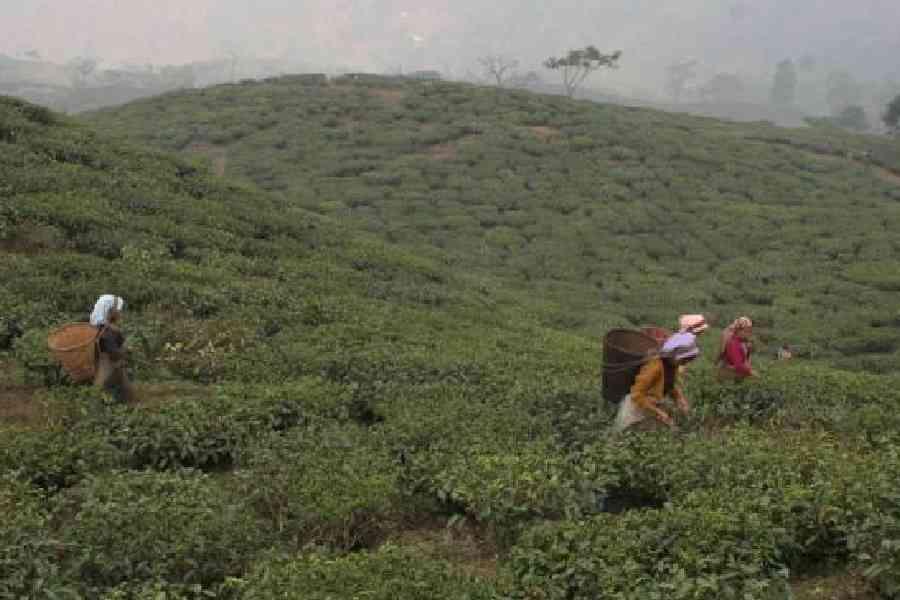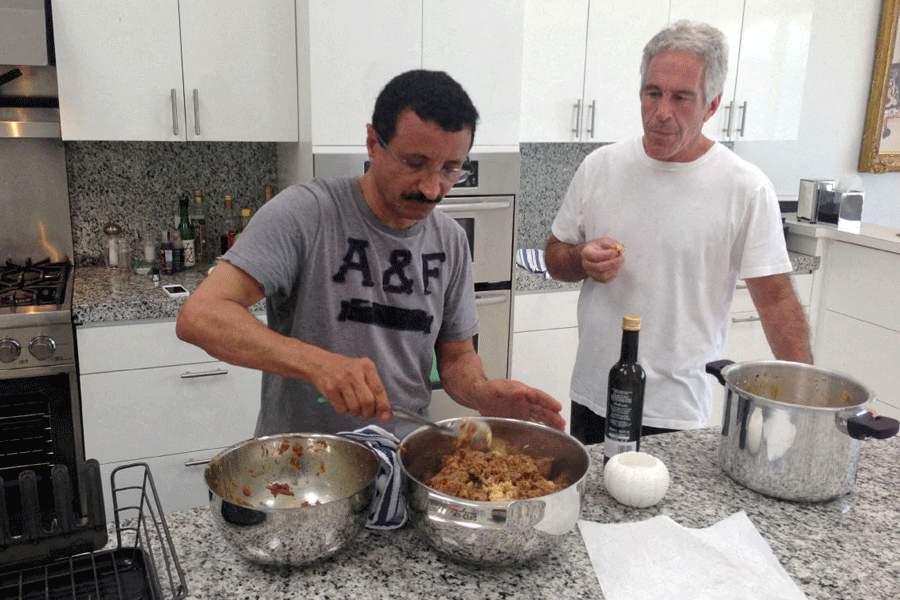The Bengal labour department issued a gazette notification to stop the sale of teas with pesticides banned by the Food Safety and Standards Authority of India (FSSAI) and the unbridled influx of Nepal teas.
The notification, issued on Tuesday, says that the state government has evolved a mechanism to keep a check on the quality of teas produced in Bengal as well as teas that come from other states or neighbouring countries.
Along with the notification, the state has also annexed a list of 26 pesticides banned in the tea industry.
“There are reports that tea cultivators and growers in the state are using the banned or restricted pesticides. Despite the ban, such teas continue to be bought and sold in Bengal. These pesticides are reportedly being used secretly and without authorisation in tea gardens, particularly in certain pockets of north Bengal. This is a matter of grave concern, given the adverse impacts of these chemicals on the health of tea garden workers, tea consumers and the surrounding environment,” said a senior official of
the department.
The use of such pesticides can lead to negative implications in both domestic and international tea markets. Thus, it has been decided to monitor the use of pesticides and keep a check on the quality of teas made and sold across the state, the official added.
According to Tuesday’s notification, the West Bengal Tea Directorate, under the labour department, will take steps to create awareness among farmers, small tea growers, tea garden stakeholders, wholesalers, dealers, retailers and agents about the prohibition on the sale, distribution, use and stocking of banned pesticides.
“The additional labour commissioner of the north Bengal zone will assist the directorate. The directorate and the department will immediately act to prevent the use and stocking of such pesticides. Initiatives would be taken to stop the sale of teas produced here by using such pesticides,” said a source.
The officers of the department have also been authorised to intercept any vehicle carrying tea leaves to collect samples of tea in case they suspect that such teas might contain the banned pesticides.
“They will get samples tested in notified labs. Similarly, officers of the Customs department posted at the international border check posts in Bengal will allow vehicles to carry tea only if they have with them a tea testing clearance report issued by such labs or any other competent authority. This will stop the import of inferior quality teas or teas with hazardous pesticides into the state and the country,” the source added.
Over the past few years, stakeholders of the Indian tea industry, particularly those in north Bengal, have expressed concern repeatedly over the unchecked import of Nepal teas, pointing out that these were not tested in India but sold in India and overseas.
“It is good the state government has decided to tighten its grip on this issue. We welcome the decision. It will largely help to prevent the sale of teas, whether imported into India or produced in our state, which are unsafe for consumption,” said Bijoygopal Chakraborty, the president of the Confederation of Indian Small Tea Growers Associations (Cista).
Through the notification, the state government has also authorised officers of the state police posted at check posts in the international and interstate borders to check vehicles carrying tea into Bengal.
“They will check whether the consignment of tea concerned has obtained a lab testing report. Necessary communications have been passed to authorities,” said an official.
“This notification comes as a major step to stop the production and sale of inferior quality teas. We will extend all possible cooperation (in efforts towards this end),” said Rana Dey, secretary of the Terai branch of the Indian Tea Association.










